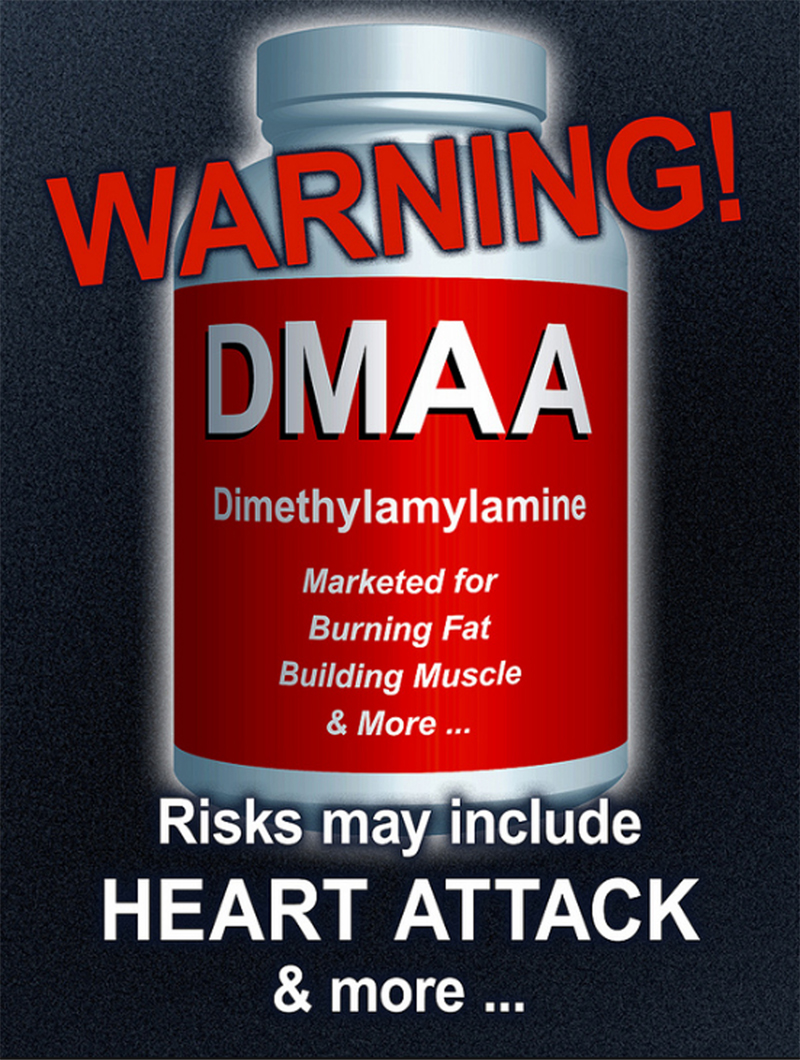FDA Warns Of Dangerous Weight Loss Supplement DMAA
Don’t miss a thing. Get breaking Santa Clarita news alerts delivered right to your inbox.
 PRESS RELEASE | SCV NEWS
PRESS RELEASE | SCV NEWS
The Food and Drug Administration is using all available tools at its disposal to ensure that dietary supplements containing a stimulant called dimethylamylamine (DMAA) are no longer distributed and available for sale to consumers in the marketplace.
The ingredient, DMAA, is most commonly used in supplements promising weight loss, muscle building and performance enhancement. It can elevate blood pressure and could lead to cardiovascular problems, including heart attack, shortness of breath and tightening of the chest. Given the known biological activity of DMAA, the ingredient may be particularly dangerous when used with caffeine.
As of April 11, 2013, FDA had received 86 reports of illnesses and death associated with supplements containing DMAA. The majority are voluntary reports from consumers and healthcare practitioners. The illnesses reported include heart problems and nervous system or psychiatric disorders. Note, however, that a report is not proof that the product actually caused the problem.
FDA has warned companies known to be using DMAA in dietary supplements that those products containing this ingredient are illegal. Such warnings offer the quickest way at FDA’s disposal to halt the further distribution of dietary supplements containing DMAA in the marketplace. In fact, all but one of the companies sent a Warning Letter have agreed to stop using DMAA as an ingredient in their dietary supplements. The one company that has yet to agree to such action, USPLabs, has responded to FDA’s warning by submitting published studies that purport to challenge FDA’s conclusions.
However, after reviewing the studies provided by USPLabs, FDA has found the information insufficient to defend the use of DMAA as an ingredient in dietary supplements. FDA is finalizing a formal response to the firm to reflect its findings, according to Dr. Daniel Fabricant, director of FDA’s Division of Dietary Supplement Program.
FDA’s authority over dietary supplements is very different from its authority over drugs and other medical products. FDA is required to undertake what are usually lengthy scientific and legal steps in order to force the removal of dietary supplements that may be unsafe or are otherwise illegal if companies don’t voluntarily comply.
As FDA continues the process needed to get DMAA off the market, the agency is urging consumers to check labels and avoid any dietary supplements containing DMAA, which is referred to on different product labels by 10 possible names. The alternatives are listed at FDA’s DMAA web page.
The Challenge of Dietary Supplements
FDA’s response to the use of DMAA illustrates the challenges that the agency faces in addressing incidents involving potentially dangerous dietary supplements. The effort is increasingly important as the use of dietary supplements increases worldwide. A 2011 study found that more than half of U.S. adults used a dietary supplement between 2003 and 2006, compared to 40 percent between 1988 and 1994.
In recent years, FDA has alerted consumers to hundreds of tainted products marketed as dietary supplements. Consumers should be aware that dietary supplements are subject to different oversight than drugs and other medical products.
“Consumers may mistakenly look at a capsule and think that FDA has signed off on that product as safe and effective prior to that product appearing on the market, as we do with drugs and other medical products,” Fabricant said. “In contrast, with dietary supplements, there is no pre-market approval, and once a product is on the market, the burden is on the FDA to prove that a product is unsafe.”
FDA’s role in overseeing dietary supplements is laid out in a 1994 law and subsequent amendments. FDA’s enforcement capabilities range from issuing warning letters seeking voluntary cooperation—the quickest way to get a product off the market—to bringing criminal charges. In recent years, FDA enforcement actions involving dietary supplements have included banning products, executing injunctions, working with U.S. marshals to seize products, and issuing safety alerts and consent decrees—which are agreements approved and enforced by a federal court.
In many cases, FDA has acted when dietary supplements were found to contain ingredients approved for use in prescription drugs. DMAA was approved in 1948 for use as a nasal decongestant, but the approval was withdrawn in 1983.
The products cited in the warning letter to USPLabs are Oxy Elite Pro and Jack3D. These products claim, among other things, to be fat-burning and performance-enhancing supplements, respectively. While action in that case in pending, FDA is following up to ensure that other companies which promised to cease using DMAA as an ingredient in their dietary supplements are actually doing so. FDA is also looking to see if there are other dietary supplement products containing DMAA in the marketplace, and will continue to act to ensure that such products, when identified, are no longer distributed and available for sale to consumers.
Consumers are urged to report any problems associated with supplement use to the company or the agency, and to always consult with their health care professional before using a supplement.
Do you have a news tip? Call us at (661) 298-1220, Or drop us a line at community@hometownstation.com
- Article: FDA Warns Of Dangerous Weight Loss Supplement DMAA
- Source: Santa Clarita News
- Author: SCV News
 KHTS Radio Santa Clarita Radio – Santa Clarita News
KHTS Radio Santa Clarita Radio – Santa Clarita News




